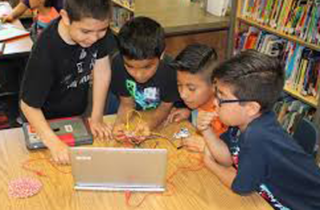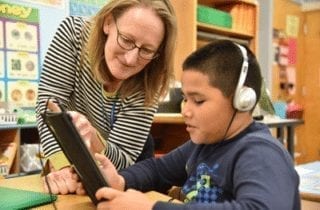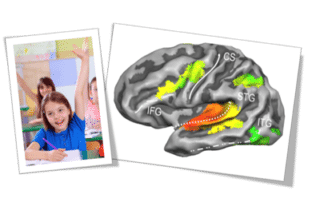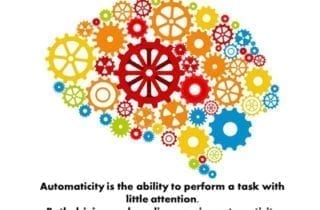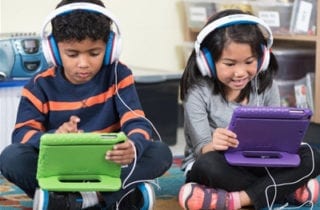In this edWebinar learn how assistive technology allows students to access and master grade-level curricula even if they have dyslexia.
This edWebinar explains why stories can have a physical impact on the brain, and how moments of deep learning and engagement can have transformational impacts on students.
In this edWebinar, learn to identify misconceptions about stuggling readers, and strategies to provide improved learning opportunities for all students.
In this edWebinar, discover the most actionable insights from this year’s What Kids Are Reading report—along with steps for boosting engagement.
In this edWebinar, Christy Scattarella shares how a pilot project addresses key skills that unleash a discouraged reader’s innate courage.
According to hillforliteracy.org, about 66% of 4th grade readers cannot read proficiently, which often translates into a growing achievement gap for these children. Why is reading such a difficult task to learn and teach? While humans are born with a natural ability for spoken language, reading is much different. In fact, Dr. Vera Blau-McCandliss, Vice President of Education and Research at Square Panda, said that reading is a relatively new and unnatural phenomenon which she described in “Reading and the Brain.”
In this edWebinar, Dr. Leslie Maniotes discusses literacy skills and show how to unlock the power of curiosity in all learners.
In this edWebinar, Terrie Noland shares information to help understand when gaps in automaticity occur in reading fluency.
In this edWebinar, gain strategies for teaching phonemic awareness and learn why phonemic awareness is critical for building foundational literacy skills.
In this edWebinar, learn what educators can do to counteract declines in motivation through strategies that boost motivation and impact reading achievement.


